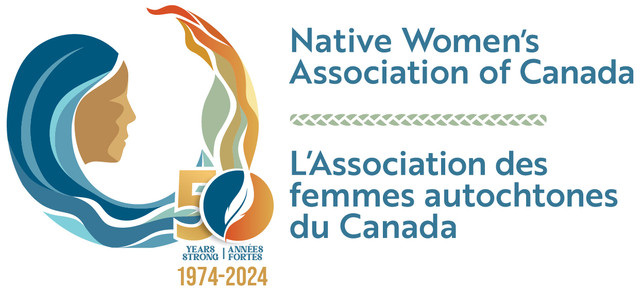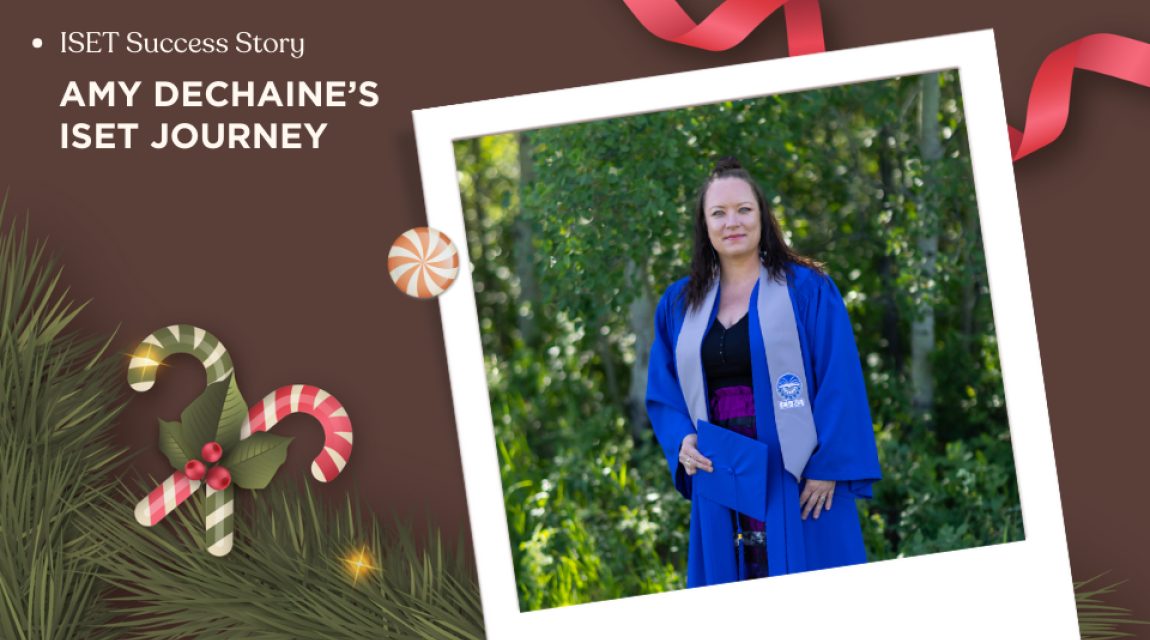Starting college or university as a mature student with a busy family (I have four kids), is terrifying, overwhelming, and a little crazy. Schedules, travelling, deadlines, and the dreaded finances all bring significant stress. But things are meant to happen when they do and I am so proud to have completed the Indigenous Bachelor or Social Work Degree at University nuhelot’įne thaiyots’į nistameyimâkanak Blue Quills. With support from the Indigenous Skills and Employment Training Program (ISET), I was able to complete the program. By completing this program, I have been able to show my children that it is never too late to do something you love and that it takes sacrifice and hard work to achieve it.
I first heard of the Native Women’s Association of Canada about 20 years ago as my sister was supported through NWAC in her educational journey. I never thought I would go to college or university to receive a degree because school was extremely difficult for me. and I did not want to fail. I love helping others and always have. So I applied for and completed the Community Social Work (CSW) program at our local college.
During this time I discovered many things about myself. I came to the realization that I have ADHD, severe anxiety, a learning disability and with all this struggled with depression. This is why I would fail every exam in high school. I also discovered that educational settings today offer more supports for those who need extra support.
I also realized that my diploma was lacking in one specific area that I know is extremely important—Indigenous world views, teachings, and knowledge. I also realized I wanted to continue my educational journey.
I was accepted into the Indigenous Bachelor or Social Work degree at University nuhelot’įne thaiyots’į nistameyimâkanak Blue Quills. This program was absolutely amazing. It was a course full of learning about yourself, looking at your own traumas. You cannot help others if you cannot help yourself, if you cannot look or recognize your own biases and privilege, and understand what your triggers are. if you are able to recognize these, then you are more equipped to support others and less likely to harm those you work with. In the end, I am fully confident that this educational journey has equipped me with the tools necessary to be a miyo ototemihtohiwew otatoskew (good relationship worker).
After being a one-income household for such a long time, our family finances were already bleak. Receiving support from NWAC’s ISET has truly set up me and my family for success. I received funding for the tuition and books, and a living allowance. I was also told if I ever needed any support with anything to not hesitate to ask, even if it is just a phone call.
As wonderful as the program is in that its focus is on supporting Indigenous women to become employable, I can’t help but wonder how valuable it would be if it would also help Indigenous women receive higher post-secondary education. Elevating Indigenous women in their careers will do so much for communities. It will increase our presence in areas where they are limited, such as in management, policy, government and politics, education, and Indigenous education—areas that make change, build strength, and project our voices.
At Blue Quills, and places like it, we explored what it truly means to decolonize and indigenize our spaces and how we need to take back our voices and recognize the strength that is in everyone. Finances are always a huge barrier to continuing our education, and eliminating this barrier would be a wonderful step to elevating Indigenous women.
Decolonize and Indigenize: this is my passion and I share and teach this in my workplace, as much as I am able, with both teachers and students. I am employed as a Family/Indigenous Outreach Worker (school counsellor). I enjoy being out in the community and sharing what I have learned. I have been decolonizing my space and my practice, and in doing so I have created positive relationships with students and their families. Making cultural spaces, teachings, and art has created a space where students know they are heard, seen, appreciated, and understood.
The next steps for me are exciting. I decided to continue with my education and have been accepted into the Indigenous Master’s of Social Work program at Blue Quills. When I complete this program in two years, I hope to be able to become an instructor at the university.
In my community learning class, I and two other amazing women are working on a project that is grant-based for Métis individuals. It includes restorative justice practices, understanding trauma, healing from trauma, and so much more.
I want to thank each and every one of you who have created, built, supported, worked hard for, and implemented this educational program along with all the other programming that is offered. These programs are truly making a difference and changing lives in positive ways. You are helping people find their voices, build their confidence and pride, see their worth, and so much more.

